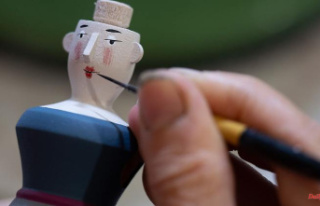Mushrooms are a delicacy for many people. They are especially popular when they are collected by themselves. This year we still need some rain for a mushroom meal from the woods. The experts hope for rain.
Leipzig (dpa / sn) - The mushroom season is starting slowly in Saxony this year. "This year has been very, very dry so far, and it hasn't rained all over the place in the past few days either. But mushrooms need rainfall to grow," said Heike Bunk, who works as a mushroom expert in Leipzig. But she is confident that the first real mushroom wave will start in the next few weeks if it doesn't get hotter than 30 degrees again and more rain falls. "We all hope it will start soon."
Numerous mushroom advisors are on duty across Saxony to distinguish between poisonous and edible mushrooms for non-professionals. In Leipzig, advice on local mushrooms is available every Monday from 3:00 p.m. to 5:00 p.m. in the environmental information center until the end of October. At other times, the mushroom consultants can be visited by prior arrangement by telephone.
"I recommend that lay people start by collecting just a few mushrooms of an unfamiliar species and have them identified by a mushroom consultant," explained Bunk. Like most consultants, the 56-year-old completed a two-year training course in which she dealt, among other things, with genera, ecology and fungal toxins.
As good as mushrooms taste, it is not advisable to graze a large area, the expert advised. "Fungi have an important function for the forest ecosystem and, for example, supply trees with important nutrients via their mycelium or decompose organic material".
"Mushrooms and other wild fruits may be collected in small quantities for personal use in the forest," said Renke Coordes from the Sachsenforst state enterprise. When picking mushrooms in the forest, however, the general rules must be observed: do not leave garbage, observe the ban on smoking in the forest and do not light an open fire.
Heike Bunk also offers mushroom hikes on request. A specific area is then explored in coordination with the forest owners. "At the end of the hike, which lasts several hours, a suitable spot is found, the mushrooms are identified, and the edible ones can then be taken home for a delicious meal," explained Bunk. She recommends a woven basket for collecting, a cloth bag only in an emergency and under no circumstances a plastic bag, in which the mushrooms are crushed and spoil particularly quickly.
According to Bunk, there have only been a few life-threatening cases of poisoning in recent years. She remembers a case from last year. A woman was treated in intensive care after eating death cap mushrooms. "In the event of poisoning, we try to determine the type of fungus and thus the poison contained from leftover food or cleaning."












